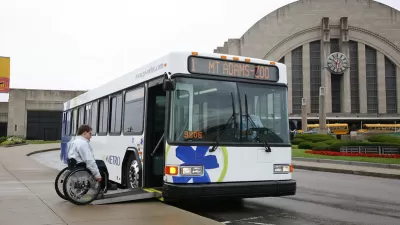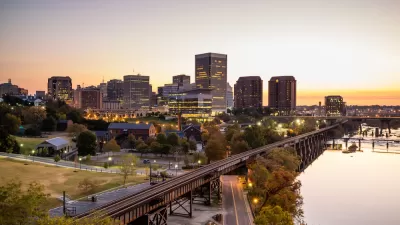A 3-2 vote determined that Whidbey Island, north of Seattle, will continue to offer rides for free.
Public comments showed concerns about falling ridership, a concern echoed in the Board's own research. "Island Transit projected an initial ridership loss of 30 to 40 percent with levels returning to current ridership in three to five years," Jessie Stensland reports for the South Whidbey Register.
Those in favor of the notion pointed to shrinking budgets forcing the agency to cut staff and service. Rising gas prices would further stretch the budget. Council Member Price Johnson argued that the funds from fares wouldn't go far to cover those shortfalls. "She pointed out that projections show that fares would generate about $200,000 a year, require $300,000 in one-time costs to implement and have over $100,000 in yearly costs. Under the best-case scenario, fares would account for only 2 percent of the annual budget after three years," Stensland writes.
FULL STORY: Island Transit board votes down bus fares

Planetizen Federal Action Tracker
A weekly monitor of how Trump’s orders and actions are impacting planners and planning in America.

Congressman Proposes Bill to Rename DC Metro “Trump Train”
The Make Autorail Great Again Act would withhold federal funding to the system until the Washington Metropolitan Area Transit Authority (WMATA), rebrands as the Washington Metropolitan Authority for Greater Access (WMAGA).

DARTSpace Platform Streamlines Dallas TOD Application Process
The Dallas transit agency hopes a shorter permitting timeline will boost transit-oriented development around rail stations.

Renters Now Outnumber Homeowners in Over 200 US Suburbs
High housing costs in city centers and the new-found flexibility offered by remote work are pushing more renters to suburban areas.

The Tiny, Adorable $7,000 Car Turning Japan Onto EVs
The single seat Mibot charges from a regular plug as quickly as an iPad, and is about half the price of an average EV.

Supreme Court Ruling in Pipeline Case Guts Federal Environmental Law
The decision limits the scope of a federal law that mandates extensive environmental impact reviews of energy, infrastructure, and transportation projects.
Urban Design for Planners 1: Software Tools
This six-course series explores essential urban design concepts using open source software and equips planners with the tools they need to participate fully in the urban design process.
Planning for Universal Design
Learn the tools for implementing Universal Design in planning regulations.
Municipality of Princeton
Roanoke Valley-Alleghany Regional Commission
City of Mt Shasta
City of Camden Redevelopment Agency
City of Astoria
Transportation Research & Education Center (TREC) at Portland State University
US High Speed Rail Association
City of Camden Redevelopment Agency
Municipality of Princeton (NJ)





























